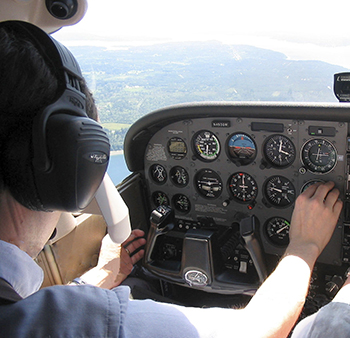Subscriber question:
"I've decided to go for the instrument rating, but time and money are tight. What's the best way to save on both while getting good training?" — Chris T.
Elaine:
 “It’s pretty simple: Don’t use an instructor for things you can do yourself.
“It’s pretty simple: Don’t use an instructor for things you can do yourself.
The instrument rating (in the big picture) is half knowledge on the ground and half practical skills in the air. Before you spend anything, start with the free stuff. You can download testing standards, handbooks, and regulatory documents published by the FAA at no cost. Along with your aircraft handbook, they’re just about all you need.
Start with the Instrument Rating Airman Certification Standards, which outline all the ground and flight tasks you need for the checkride. Then start digging into the relevant topics in the FAA’s two go-to handbooks: Instrument Procedures and Instrument Flying. Meanwhile, the FARs, AIM, and Advisory Circulars are searchable on www.faa.gov.
Fill in the rest, including written test preps, by purchasing online courses or books. There are a lot of quality, reasonably priced materials out there and you can get referrals from your instrument-rated friends. Then learn everything you can about IFR regs, procedures, and weather and you can save hundreds of dollars on in-person ground instruction.
For flying, I’ve always told new clients to be sure you’re proficient—and I mean really good— at everything you did on your private pilot checkride. This includes ATC communication, and VOR navigation (along with GPS if you have it). You can save many hours of training time because IFR flying simply builds on these skills.
The best way to do this yourself is to fly VFR cross-countries using Victor airways and using flight following services with ATC. Then be sure you can ace the maneuvers like slow flight, stalls, go-arounds, and crosswind landings. Fly with a CFI if you need to initially.
Once in training, you can learn a new IFR procedure or maneuver with your instructor, and then have your instrument-rated friends fly with you as safety pilots. They get to fly for free and you’ll both have a lot of fun. It’s also a great way to pick up free pointers, too, while you progress toward that IFR ticket.”
What is (or was) the biggest impediment to getting your instrument rating?

